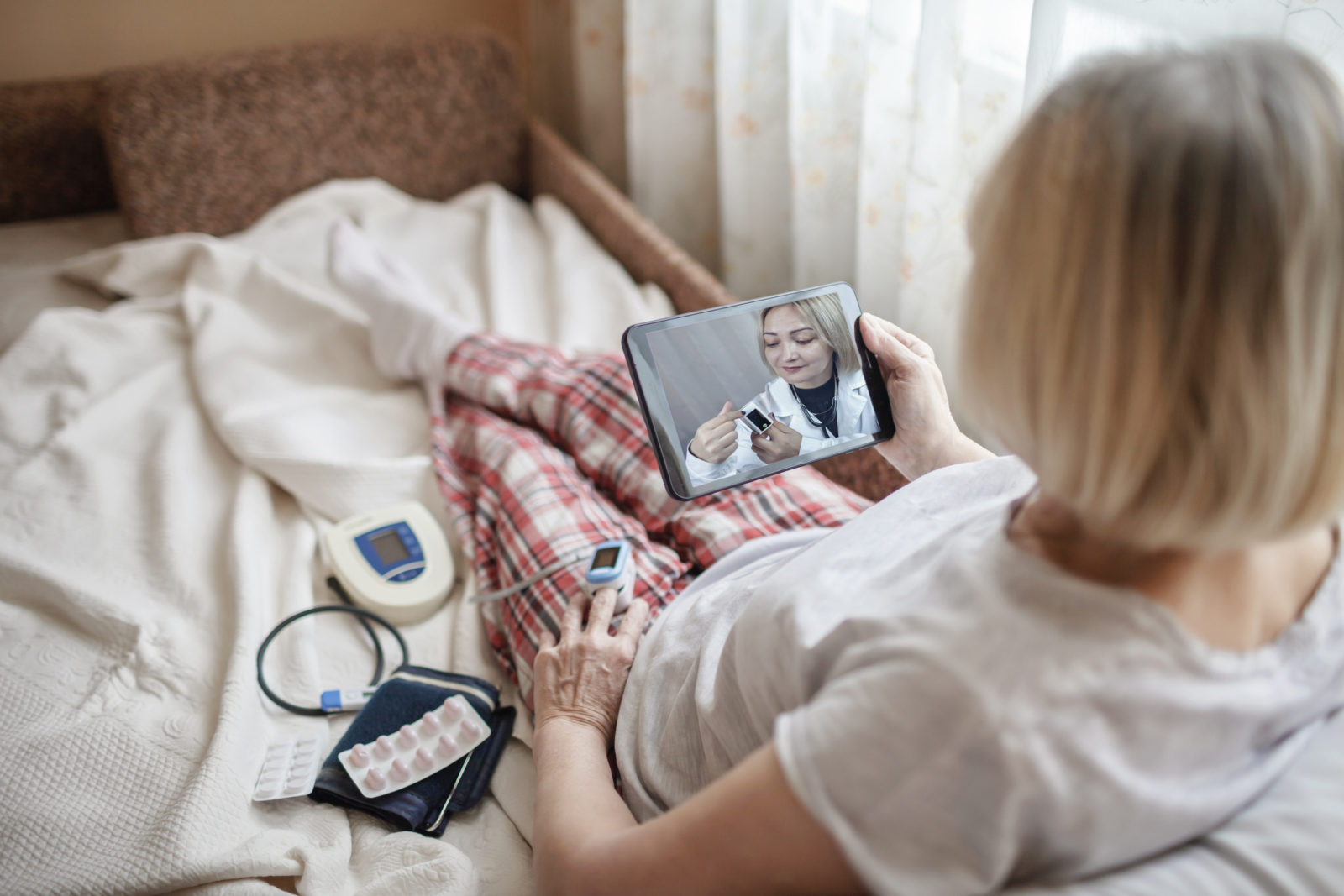‘Hospital At Home’ Helps Seniors Age In Place

“Hospital at home” is an emerging approach to healthcare in the U.S. that is helping address several challenges. The American Hospital Association (AHA) describes it this way: “Hospital-at-home enable some patients who need acute-level care to receive care in their homes, rather than in a hospital. This care delivery model has been shown to reduce costs, improve outcomes and enhance the patient experience.” What’s more, it allows seniors who want to continue living at home to do so while receiving the care they need.
Here in the Boston area, Mass General Brigham recently announced a significant expansion of its hospital at home programs. “If someone put me on the spot and asked why are we doing this, we’re doing this because it’s really good for patients. Oh, and by the way, it absolutely does help us on the cost front,” said Gregg Meyer, a Mass General Brigham executive in a recent Boston Globe article.
Mary Jo Boynton, LICSW, C-ASWCM, a life care manager here at LifeCare Advocates, agrees. Here she describes a couple of her experiences working with clients who were receiving hospital-at-home care.
Medical care with no stress
Mary Jo has worked with two different hospital programs offering different services. One was a pilot project led by a physician who managed a team of paramedics and EMTs. Mary Jo’s client was a woman living with multiple sclerosis who could not leave the house. The only way she could get to medical appointments was via stretcher but due to COVID, private ambulance service no longer was an option, so the only way she could receive care was via ambulance to the ER. With the pilot program, she was able to have virtual visits with the physician. The paramedics and EMTs would go to the patient’s house to assess her condition and do lab work, administer medications, or other needed tasks. The arrangement helped the client avoid multiple visits to the ER.
“This was an incredibly positive experience,” says Mary Jo, “because the client was able to get the medical care she needed with no stress on her. I kept the doctor up to date on what was going on in the house and how the client was doing.” What’s more, says Mary Jo, “This particular physician took a wholistic view of my client—her social status, living environment, etc., so in her treatment of the client she tried to address all those areas.”
She adds, “The doctor’s availability was amazing. Whether it was phone calls or emails, we had quick communication when we needed it. If there were any concerns about ancillary services needed in the home, I would discuss it with the doctor. It was a real partnership between the three of us—the client, care manager and physician.”
Another case involved a geriatrician who set up a program in which she sends nurse practitioners into the patient’s home. “That works equally well,” says Mary Jo. That program also worked with the hospital-based pharmacy that delivered pre-packaged medications to the client. “What’s nice about both programs is it’s easy to reach them. These folks are available for just the smallest questions, and they call you right back.”
Care managers help doctors with key info
“These physicians really seem to appreciate the care manager’s ability to provide a knowledgeable description of what’s going on medically,” says Mary Jo. “I know the questions to ask the home health aides and the questions to ask the clients. I’m not a nurse, but I know enough to describe the details they’ll need in order to consider next steps regarding a treatment decision. Sometimes you can’t get that from the client—for example, if they have dementia.”
Who’s a good candidate for hospital at home?
Mary Jo emphasizes that this setup is great for clients who are homebound—who cannot easily get to a medical appointment due to mobility, lack of transportation, cognitive issues, etc. It’s also good for people who have complex health needs because the experts can see them in their home environment to get a very clear picture of their situation.
If you’d like to hear more about our services, please contact us by phone or email.
![LifeCare Advocates [logo]](https://www.lcadvocates.com/wp-content/uploads/sites/270/2017/11/logo.png)